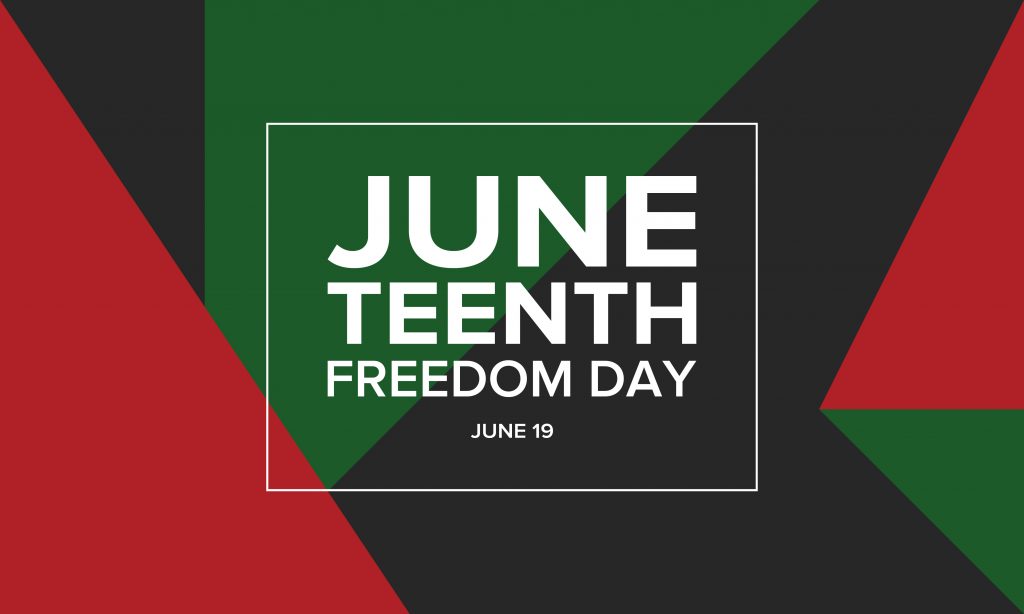Dear Clergy and Congregational Leaders,
Today is Juneteenth, also known as Freedom Day or Emancipation Day, a U.S. holiday commemorating the emancipation of slaves in the U.S. On June 19, 1865, the Emancipation Proclamation was read in Texas to African American slaves. Texas was the last state to read the Emancipation Proclamation, which had been signed by Abraham Lincoln on January 1, 1863.
Racism against African Americans has continued in the U.S. for more than 400 years. Slavery was built on four types of racism:
- Individual racism is when people hold personal beliefs, values, stereotypes and attitudes, consciously or unconsciously, that devalue and/or hurt the humanity and God’s giftedness of African Americans or people of a different race than their own.
- Interpersonal racism builds on individual racism and is when people use slurs, biases, hateful and hurtful words or actions against African Americans or people of another race. Interpersonal racism affects the relationships or lack of relationships we have with people of another race.
- Institutional racism occurs when an organization, like the church, has discriminatory policies or is biased in treatment and practices based on race that results in inequitable outcomes for African Americans or people of another race. For example, when the United Methodist Church organized separate conferences for African Americans from 1939 through 1968, this church policy was based solely on race and eliminated African Americans’ rights to resources and opportunities within the larger church.
- Structural racism is a system of racial bias that stretches across cultures, organizations and institutions. The system establishes the biases and society accepts these biases. For example, when an African American is killed by a police officer, many White people think it is because the person did something wrong and deserved to be killed. Similarly, the courts sentence African Americans to longer prison sentences than White people because society has been conditioned to believe African Americans are more dangerous than White people.
The Emancipation Proclamation freed slaves from their slave masters but not from the sins of discrimination, biases and racism that continue today through individual, interpersonal, institutional and structural racism. Lord in your mercy, forgive us!
The Black Lives Matters movement seeks to call attention to all four aspects of racism. Many people are doing better at overcoming personal and interpersonal racism, but institutional racism and structural racism are much more subtle and more widely accepted. Because institutional and structural racism are so ingrained in society, it seems natural or normal to many people. Our work as United Methodists of Greater New Jersey is to end all four types of racism in the church and to be witnesses to transform the world.
Following the death of George Floyd, I began working with individuals and groups to identify the next steps for building on the good work we are doing in GNJ, and deepening and expanding the ministry to address the four types of racism. I ask for your prayers as I lead us forward.
I have also scheduled listening sessions across GNJ to hear your hopes for our future. There are still two more opportunities to participate. You will be able to Zoom or call in on the following dates and times:
Friday, June 19, 11:30 a.m.
Zoom link: https://gnjumc.zoom.us/j/97012674283
Meeting ID: 970 1267 4283
Dial-in: 1 646 876 9923 / Meeting ID: 970 1267 4283
Monday, June 22, 7:00 p.m.
Zoom link: https://gnjumc.zoom.us/j/91786202983
Meeting ID: 917 8620 2983
Dial-in: 1 646 876 9923 / Meeting ID: 917 8620 2983
While this is hard work, it is not hopeless. God is ready to heal, transform and renew the church and our own lives. Your engagement will ensure we will continue to make and even speed up progress for the day when we will overcome racism with changed people, systems and church.
On this Juneteenth, I want to thank African Americans for your faithfulness and loyalty to the church, especially when we are wrong. For your consistent efforts to make us a better church and me a better leader. It has come at a great cost to you. I and many of us will be eternally grateful for being the presence of Christ among us. You are a gift. Thank you.
Keep the faith!
John
Bishop John Schol
United Methodists of Greater New Jersey

